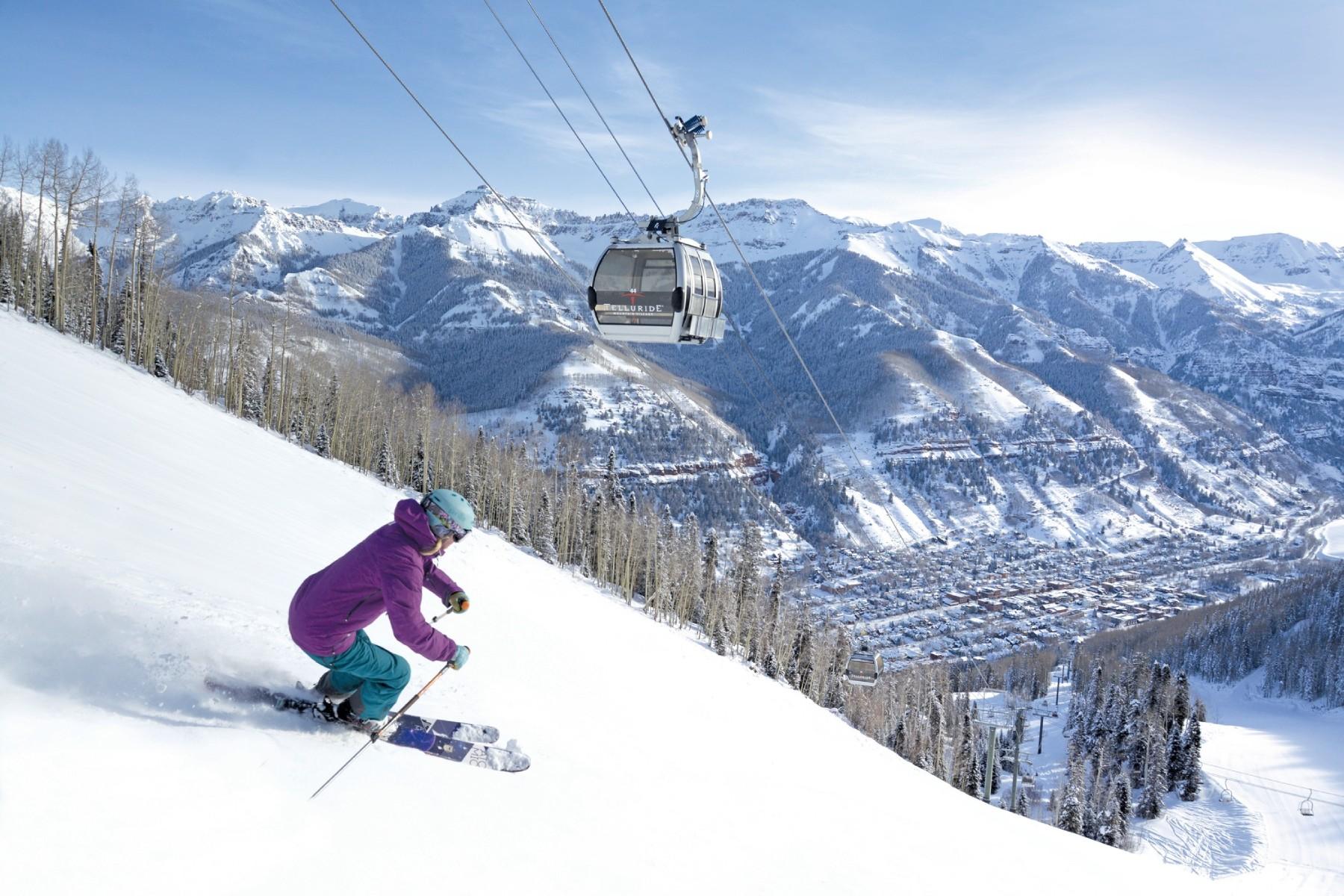
“My job is to follow the law,” Colorado Secretary of State Wayne Williams said Thursday in addressing critics of his decision to turn over publicly available voter-roll data to a White House panel. Those critics should try and change state law, rather than insist his office pick and choose whose data requests to fill, he said.
A White House commission has asked for data from all 50 states in an effort to investigate possible voter fraud. While producing no evidence to support his claims, President Trump has repeatedly alleged the existence of widespread voter fraud.
”We receive requests every day for voter-roll data,” Williams told Colorado Matters. Some of that information is already public under state law, and some isn’t. “I want to emphasize that Social Security numbers, specific dates of birth, drivers license numbers, that information is private, is confidential, and will not be produced to the presidential advisory commission, and is not produced to the [political] parties or others.”
The entire program is on hold for the moment after it was challenged in federal court. In the meantime, nearly 3,400 Coloradans have canceled their voter registrations since the data request, The Denver Post reports. And the controversy has prompted a new contender in the Secretary of State's race. Jena Griswold, a Louisville attorney, said she would not have cooperated with the commission.
People withdrawing their voter registration “is a bad consequence of the adverse publicity around the White House request,” Williams said. He pointed out that even if someone did opt out of voter registration, the action is not retroactive — a voter's previous activity remains a matter of public record within what's covered by Colorado law.
Interview Highlights With Wayne Williams
On whether the data request is being politicized:
"I think it has been politicized very definitely, because this same information is asked and sought for every single day. We provided an EX003 report. It's a $50 report that anybody can get. If you look at last fall, for example, CBS 4 got a copy. They ran that against the social security death index and they found ballots that have been turned in for people who were deceased. Prosecution actually today, as we're speaking, one of these individuals who had cast ballots for her deceased parents has a court appearance in Colorado Springs. There is information that can be used, but it's important not to cancel someone or to take any action, because just the names are the same.
On whether Trump's panel is a solution in search of a problem:
Full Transcript
Ryan Warner: This is Colorado Matters from CPR News. I'm Ryan Warner. Hundreds of Coloradans have canceled their voter registrations recently. That's after Secretary of State, Wayne Williams, agreed to release voting records to a new presidential commission looking at possible election fraud. The request has drawn a lot of fire nationally, including from some of William's fellow Secretaries of State. This request for data is being challenged in court right now. Wayne Williams is here to talk about this and about suggestions he'll make to this presidential commission when it comes to election changes and Secretary, welcome to the program. Wayne Williams: Thank you very much for having me on today, Ryan. RW: A Denver elections official told the Denver Post this week that at least 472 voters had canceled their registrations there since July 3. That compares to 20 who had canceled in the previous two weeks, just for some contrast there. You've pointed out that the information you agreed to release to the commission is, by law, public. That said, if this drives people to withdraw from the voting ranks, isn't that an unintended and bad consequence? WW: You know I think it's a bad consequence of some of the adverse publicity that has been generated as a result of the request. We receive requests every day for voter roll data. It's public information--some of it is. Want to emphasize that social security numbers, specific dates of birth, driver's license number, that information is private, it's confidential, will not be produced to the Presidential Advisory Commission, and is not produced to the parties or others who obtain that information on a regular basis. RW: Did the Presidential Commission want that? WW: Kind of. RW: Kind of? WW: Here's what they said, "Please provide the publicly available voter roll data including the following if publicly available." Then they said, amongst the things listed, was "social security number if available". So they wanted it if it was available as modified by three statements. RW: Let me see. WW: In Colorado, it's absolutely not available. You can spin that either way. We follow the law. And so just as when someone makes a request, and both the Democratic party, the Republican party, the Libertarian party, Healthier Colorado with respect to Amendment 69 when they were getting it on the ballot. All of these groups regularly obtain this voter roll data. RW: Do you think people who are canceling their voter registrations are overreacting? WW: I think in many cases they are because it doesn't do anything to remove your data from the list that have already been provided to every political party, to multiple candidates. RW: That is, it's not retroactive in any way. But would it affect the information shared with this presidential commission, which has not happened yet by the way, because of this winding its way through the courts? WW: Right. We have not provided it. The requester asked us to delay, and so we will delay. Colorado law normally requires us to give it within three days, but if someone asks for a longer period of time, we can certainly comply with that request. We're not gonna give it until they come back and ask for it. I think one of the things to remember in Colorado is that it's extraordinarily easy to re-register. An individual may decide to take their name off the books for a brief period of time, then re-register in advance of the November election. RW: To be clear, if they do that in light of the presidential request, will their information not be shared, in other words, is that an effective way of dealing with this? WW: It is one of the ways. The other way, if you meet the requirements of Colorado law is to become a confidential voter. That's designed for people who don't want their information public for fear of safety, legitimate safety concerns. That's a better process if that's what actually is happening, because then you stay registered as a voter. Let me go back to the other point I was making though, which is as a state that makes it extraordinarily easy for people to register, we have the highest percentage of eligible voters who are registered in the country. You can do that online at GoVoteColorado.com, you can text CO to vote. There's lots of ways to easily register. You can even walk into a polling place for any of the couple weeks of an election and register at that time. So it's not the same consequence that it is in other states who have restrictive ways to register to vote. RW: That is to say, it's easy to re-register? WW: It's extraordinarily easy. RW: Critics say that this presidential commission's real motive is to suppress legitimate voters or that it could happen, perhaps, by mistake. Say for instance, the federal government cross checks names on the Colorado list against a national list of people who are in the country illegally. The names match, but the person in Colorado is actually here legally and has the right to vote, but gets struck from the rolls. Or maybe a voter is intimidated by the fact that their information is being shared and decides not to register. Is that an effect what's happening when you have almost 500 people in one Colorado county canceling their registrations? WW: So first, they're canceling it in response to a campaign from folks to encourage, I think, some of this behavior, which is a sad thing. RW: You think this is being improperly politicized? WW: I think it has been politicized very definitely, because this same information is asked and sought for every single day. We provided an EX003 report. It's a $50 report that anybody can get. If you look at last fall, for example, CBS 4 got a copy. They ran that against the social security death index and they found ballots that have been turned in for people who were deceased. Prosecution actually today, as we're speaking, one of these individuals who had cast ballots for her deceased parents has a court appearance in Colorado Springs. There is information that can be used, but it's important not to cancel someone or to take any action, because just the names are the same. I would know. I've got a name like Wayne Williams. There are many Wayne Williams' in the country. No federal commission, no federal government, no outside party, can cancel any voter in Colorado. In Colorado, we require minimum matching criteria to exist before anyone is ever removed from the voting roll. That's not enough. The information being provided that's publicly available, is not enough to do that in Colorado. RW: We're speaking with Colorado Secretary of State, Wayne Williams. I think what I hear you saying, is that if people are to take issue with this, they ought not take issue with you, but with state law? WW: We follow the law, and I think the Denver Post, the Grand Junction Sentinel have both written editorials noting that we're just following the law, and you're right, my job is to follow the law. As Secretary of State, I don't get to pick and choose who I give information to, I follow the Colorado Open Records laws. RW: And yet you have now an opponent in the race for your re-election who is making this an issue. Do you think this is going to be the defining issue of the Secretary of State's race? WW: No, I think the defining issue will be who's actually run elections, who's worked to develop support from individuals, it's why a number of county clerk and recorders who are Democrats are supporting my re-election in this race. RW: The Department of Homeland Security said it believed Russian hackers targeted voter registration systems in more than 20 states last fall. One argument against this White House panel's request, is that a national database could be vulnerable to attack, essentially a one-stop-shop for hackers. Does that concern you? WW: Anyone who thinks that, doesn't understand what is actually being submitted. It is simply a list of a temporary time. Changing that list, hacking that list does zero, does absolutely nothing in any state in the country. RW: In the states. WW: And so, in order to affect a voter registration in any state, you actually have to penetrate that state's cyber security. RW: Any sense that Colorado's voter registration was targeted last fall? WW: We are scanned on a regular basis, we were not one of the 21 states identified by the Department of Homeland Security. We work extraordinarily hard to ensure the security of our data in the voter registration list. Important to note, that hacking that, even if it was successful, would not change anyone's vote, because that's a separate system from the election systems on which people vote, and on which ballots are tabulated. Those systems are not connected to the internet. RW: We're going to talk in just a moment about a new system Colorado is adopting to ensure that the system is safe, but I do want to ask a kind of fundamental question about this White House Fraud Commission Task Force. President Trump has said that as many as five million people voted illegally in the 2016 election, but many experts have said that just isn't the case, that there's not evidence for that. Do you have some evidence to the contrary? WW: Colorado has, and this, we have looked at things very closely here, we have great processes in place, I've seen no evidence of vote fraud on that scale. We have seen evidence of some vote fraud, but nowhere on the scale that has been referenced. RW: So is a commission like this, at the federal level, a solution in search of a problem? WW: I think any time there is an issue that people have concerned about, it's appropriate to take a look at the matter. I think, and my hope, based on the fact that there are a number of Secretaries of State, including three presidents of the National Association, two of whom are Democrats on this commission, is that they will actually look at the data that's there and will help resolve some of the extreme arguments on both sides, that there's no voter fraud or that there are millions. RW: There is a new state law here in Colorado, regarding election security, and it will make us the first state in the country to use a risk limiting audit to double-check election results after the votes have initially been counted. In layman's terms, how does that work? And I understand some software's being rolled out soon about this. WW: There's a couple of things we're doing to ensure elections are secure. One of them, I adopted new election standards that require a paper ballot for any new machine. 54 of our states, 64 counties have already moved to this new system that has a paper ballot record in every instance. RW: Like a print out, like a receipt? WW: Like the actual ballots, even if you use a touch screen, what prints out is a paper ballot so we can verify it. Then the new system that we're using for the risk limiting audit, will scientifically determine random ballots to pick, it will be the 38th ballot in Box 6 or something like that, in each county, and that county will then have to pull that ballot and ensure, based on an actual hand review, that the machine tabulated it accurately. That will provide folks a higher level of security than we've had before here in Colorado. RW: This is trailblazing in some regards? WW: It is. In the past, we haven't had the ability to actually identify specific ballots. We've said, "Go grab this box." Or something like that, which was an audit and is a good process, but this is a better process, established by the legislature a few years ago, we're implementing it now in Colorado, 2017 will be the first election to have that. RW: All right, what recommendations if any will you make to this Presidential Commission about how elections could be better conducted across the country? WW: So the first and foremost of those deals was cyber security issues. The Department of Homeland Security has had a policy of notifying what they call victims, which means the local governments involved, but not notifying the states. So they would notify a county that their election system may have been attacked, but they wouldn't tell the state about that information. I think it's absolutely critical, this is something that all of my colleagues across the country agree with, is that Secretaries of State or the Chief Election Official needs to be told if there are vulnerabilities, if there are attacks within their state. So that's one of the recommendations we're going to look at. There are some outdated audit requirements for old equipment that has been depreciated, that's expensive, that doesn't make sense, that I think needs to be reformed. Most people when they update their data with the government, also want their voter registration changed, that's critical here in Colorado where we mail out ballots to every single voter. We can't get from the Federal Government, information when someone tells the Federal Government their address has changed. For a lot of people they don't distinguish between the jury summons they got from the federal court in which they said, "This isn't where I live anymore." And then they think that their ballot will go to the right place. We need to make sure that, that process works better, so those are some of the recommendations we're going to make. RW: Wayne Williams, thank you for being with us. WW: Thanks Ryan, for having me on today. RW: He's Colorado's Secretary of State, this is Colorado Matters from CPR News. |
Editor's Note: This story has been updated, July 14, to reflect new figures reported by The Denver Post on voters rescinding their registrations.









